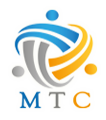Competency-Based Management Getting the Best from People
Why Choose this Training Course?
This course will show you how to use competencies to deliver real, qualified improvements in terms of productivity gains by using the technique in a practical sense. Competencies are used to define desirable behaviour and then introduce improvements in selection, assessment, talent management and retention, performance management and employee development.
This course will walk you through the integrated process of implementing competency-based HR in your organization by applying the competency framework to basic HR functions, ensuring that the right people are in the right jobs and are developed and motivated in the right way. Competencies can also be key elements in succession planning and the management of values.
This course will feature:
- Ideas how to build HR practices that support organisation strategy
- Improvements to processes for selection and assessment
- Practical ways to optimise the contribution of everyone in the organisation
- Processes for talent management and succession planning
- Techniques for motivating and empowering employees
What are the Goals?
By the end of this course, participants will be able to:
- Manage the distinction between competencies, skills and tasks
- Use competencies in public and private organisations
- Differentiate between Leadership, Technical and Behavioural competencies
- Link competencies to organisational objectives and values
- Use competencies for a range of HR processes
Who is this Training Course for?
This course is suitable to a wide range of professionals but will greatly benefit varied groups of delegates including those with Managerial or Supervisory responsibility and HR professionals, and this includes:
- Those who want to learn the skills involved in improving relations at work, improving productivity or improving behaviour at work
- Those who are responsible for managing or supervising any type of person, group or team
- HR and Employee Relations professionals who are responsible for the design and delivery of competency-based HR programs
How will this Training Course be Presented?
This course will utilise a variety of proven adult learning techniques to ensure maximum understanding, comprehension and retention of the information presented. This includes a range of interactive activities - group and individual exercises, case studies and discussions.
There will also be presentations from and facilitated discussions with the course leader who is an HR professional and has many years experience of using competencies in a range of applications. Each day will end with each delegate reflecting on the messages from the day and completing a summary of what has been learned that day and how the learning will be transferred back to the workplace.
The Course Content
Day One: The Links between HR and Competencies
- What support should managers, team leaders and supervisors get from HR?
- Values, Strategy and HR
- Different methods of developing a competency
- An HR Management Framework Based on Competencies
- Technical, Behavioural and Leadership Competencies
Day Two: Competencies and Recruitment
- Competency design – definitions, negative indicators, positive indicators
- Recruitment and Selection
- Adapting a competency framework for use in recruitment
- The use of assessment centres in recruitment
- Induction, orientation and personal development
Day Three: Performance Management
- Using competencies in performance management
- The stages of performance management: agreeing objectives, giving feedback, coaching, appraisal
- Termly reviews of performance
- Links to pay scheme
- Introducing a performance management process
Day Four: Talent Management
- Talent Strategy and Planning
- Developing and Deploying Talent
- Retaining Talent
- Acquiring Talent
- Succession Planning
Day Five: Shaping Behaviour and Managing Culture
- Motivation
- Extrinsic and Intrinsic Reward
- Empowerment and Accountability
- Self Assessment
- 360° degree feedback

